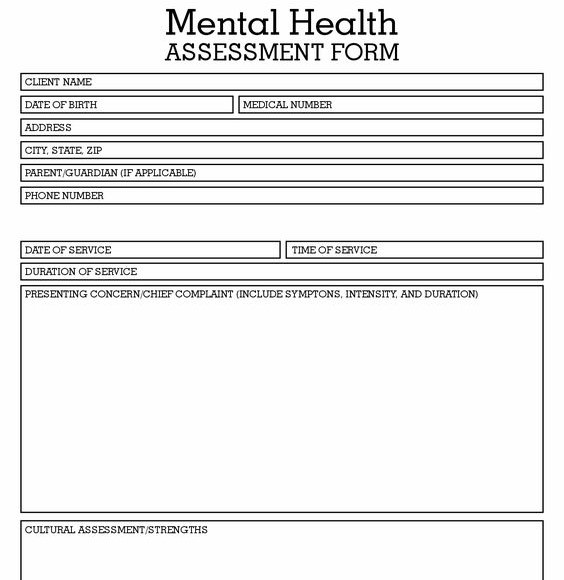
Table of Contents
In the realm of nursing, the ability to analyze and synthesize complex patient situations is paramount. This is particularly true in the field of mental health, where understanding the intricacies of human experience and behavior is crucial for effective care. Nursing case studies on mental health provide a unique opportunity to delve into the nuances of patient experiences, explore the multifaceted nature of mental illness, and apply nursing knowledge to real-world scenarios.
This article serves as a comprehensive guide for crafting impactful nursing case studies on mental health. Whether you’re a student honing your clinical reasoning skills or a seasoned professional seeking to deepen your understanding, this resource will equip you with the tools necessary to create compelling, insightful narratives.
The Core Principles of a Nursing Case Study on Mental Health

A nursing case study on mental health is not merely a retelling of a patient’s story. It’s a structured, analytical exploration that demonstrates your understanding of:
- The patient’s unique mental health condition: This includes accurate diagnosis, symptomatology, and potential contributing factors.
- The nursing process: The case study should showcase your application of assessment, diagnosis, planning, implementation, and evaluation within the context of mental health care.
- Evidence-based practice: Incorporating current research, clinical guidelines, and best practices demonstrates your commitment to providing informed care.
- Ethical considerations: Mental health care presents unique ethical dilemmas. The case study should address these thoughtfully and demonstrate an understanding of patient autonomy, confidentiality, and professional boundaries.
How to Craft a Compelling Case Study on Mental Health
1. Choosing the Right Subject for Your Nursing Case Study
A nursing case study on mental health should focus on a specific patient scenario. When selecting a subject, consider the following factors:
- Complexity: Choose a case that allows for exploration of multiple dimensions, such as the interplay between biological, psychological, and social factors influencing the patient’s mental health.
- Relevance: Select a case that reflects current trends in mental health care, such as the increasing focus on integrated care, stigma reduction, or the impact of social determinants of health.
- Ethical considerations: Ensure the case study adheres to ethical guidelines, respecting patient confidentiality and avoiding potentially harmful generalizations.

2. Gathering Data for Your Nursing Case Study on Mental Health
Thorough data collection is the cornerstone of any effective nursing case study on mental health. Here’s a comprehensive approach:
- Patient interview: Engage in a comprehensive interview with the patient, allowing them to share their experiences, perspectives, and goals.
- Medical records review: Thoroughly review the patient’s medical history, including diagnoses, medications, and previous treatments.
- Observations: Document your direct observations of the patient’s behavior, appearance, and interactions with others.
- Family and support system interviews: Gather information from family members, friends, or other support systems, gaining insights into the patient’s home environment and coping mechanisms.
- Literature review: Conduct a thorough review of relevant research and clinical guidelines to provide context and evidence-based support for your analysis.
3. Organizing and Structuring Your Nursing Case Study
A well-structured nursing case study on mental health ensures clarity and logical progression of information. Here’s a suggested framework:
Introduction:
- Briefly introduce the patient and their presenting problem.
- State the case study’s purpose and objectives.
Background Information:
- Provide demographic information about the patient, including age, gender, race, ethnicity, and socioeconomic status.
- Briefly summarize the patient’s medical history, including any relevant physical health conditions or past mental health diagnoses.
- Outline the patient’s social history, including family dynamics, support systems, education, and employment.
Assessment:
- Summarize the patient’s physical and mental health status.
- Include relevant assessment data gathered through interviews, observations, and medical records.
- Analyze the patient’s current mental state, including their mood, thought processes, and behaviors.
- Identify any potential contributing factors to their mental health condition.

Diagnosis:
- Discuss the patient’s current mental health diagnosis, providing a rationale for the chosen diagnosis based on assessment findings.
- Briefly explain the symptoms associated with the diagnosis.
- Identify any co-occurring disorders or underlying conditions that may be contributing to the patient’s overall presentation.
Planning:
- Develop a comprehensive plan of care for the patient.
- Identify specific nursing interventions aimed at addressing the patient’s needs, including medication administration, therapeutic interventions, and support services.
- Set realistic and measurable goals for the patient, considering their individual needs and preferences.
Implementation:
- Document the implementation of the nursing interventions chosen for the patient.
- Describe how these interventions were carried out, including any challenges or modifications encountered.
- Include any patient education provided, such as information about their diagnosis, medication, or coping strategies.
Evaluation:
- Assess the effectiveness of the nursing interventions implemented.
- Evaluate the patient’s progress towards achieving the established goals.
- Analyze any changes in the patient’s mental state, behaviors, or coping mechanisms.
- Identify any factors that may have influenced the patient’s response to treatment.
Conclusion:
- Summarize the key findings of the nursing case study on mental health.
- Reflect on the patient’s journey and the impact of nursing interventions.
- Discuss any lessons learned or areas for further improvement in future practice.

4. Incorporating Ethical Considerations into Your Nursing Case Study
Mental health care often presents ethical challenges. In your nursing case study on mental health, it’s essential to address these thoughtfully:
- Confidentiality: Ensure that all patient information is treated with strict confidentiality. Avoid disclosing details that could compromise the patient’s identity or privacy.
- Informed consent: Discuss the importance of informed consent in mental health care, including the patient’s right to refuse treatment or participate in research.
- Patient autonomy: Emphasize the patient’s right to make decisions about their own care, even if those decisions differ from professional recommendations.
- Professional boundaries: Maintain professional boundaries in all interactions with the patient, avoiding dual relationships or inappropriate disclosure.
5. Using Evidence-Based Practice in Your Nursing Case Study on Mental Health
A nursing case study on mental health should not rely solely on anecdotal evidence. It’s crucial to integrate evidence-based practice:
- Literature review: Conduct a thorough literature review to support your analysis and interventions. Scholarly articles and papers from reputable academic platforms such as Google Scholar and PhD Nurse Writer can be quite useful in the research.

- Clinical guidelines: Refer to relevant clinical guidelines to ensure your approach aligns with best practices.
- Research findings: Incorporate findings from relevant research studies to provide a scientific basis for your conclusions.
6. Writing Style and Format for an Engaging Mental Health Nursing Case Study
- Clarity and conciseness: Write in a clear and concise style, avoiding jargon or overly technical language.
- Objectivity: Present information in an objective manner, avoiding personal opinions or biases.
- APA style: Follow the guidelines of the American Psychological Association (APA) for formatting, citations, and references.
- Word count: Adhere to any specified word count limits for the assignment.
Topic Examples for Your Nursing Case Study on Mental Health
To ignite your creativity, here are some compelling topics for your nursing case study on mental health:
- The impact of trauma on mental health: Explore the effects of traumatic experiences on a patient’s emotional well-being, coping mechanisms, and treatment needs.
- The role of culture and ethnicity in mental health: Analyze how cultural beliefs and societal factors influence a patient’s understanding of their mental health condition and their access to care.
- Addressing stigma and discrimination in mental health: Examine the societal stigma surrounding mental illness and its impact on a patient’s willingness to seek help, their self-esteem, and their overall quality of life.
- The integration of physical and mental health care: Illustrate how a holistic approach to healthcare can benefit patients with mental health conditions, addressing both their physical and mental well-being.
- The impact of social determinants of health on mental health: Investigate how poverty, housing insecurity, lack of access to education, and other social factors contribute to mental health challenges.
- The use of technology in mental health care: Explore the role of technology in providing mental health services, including teletherapy, mobile apps, and online support groups.
Tips for Success in Writing Mental Health Case Studies

- Start early: Begin working on your case study well in advance of the deadline to allow for thorough research and analysis.
- Seek guidance from faculty or mentors: Don’t hesitate to ask for feedback and guidance from your instructors or other experienced nurses.
- Practice critical thinking skills: Develop your ability to analyze complex patient situations and make sound clinical judgments.
- Stay current with evidence-based practices: Keep abreast of the latest research and clinical guidelines in mental health care.
- Emphasize patient-centered care: Prioritize the patient’s perspective and needs throughout the case study.
The Value of Writing a Nursing Case Study on Mental Health
Crafting a nursing case study on mental health offers a multitude of benefits:
- Deepening knowledge and skills: The process of developing a case study strengthens your understanding of mental health conditions, nursing interventions, and ethical considerations.
- Improving critical thinking abilities: Case studies challenge you to analyze complex situations, apply your knowledge, and make informed decisions.
- Enhancing communication skills: Writing a case study refines your ability to communicate complex ideas clearly and concisely.
- Developing a professional portfolio: Case studies can be valuable additions to your portfolio, showcasing your clinical skills and expertise.
Writing a nursing case study on mental health is a rewarding and enriching experience. By following these guidelines and approaching the process with dedication, you’ll create a compelling and informative narrative that highlights the complexities of mental health care and the vital role of nursing in promoting patient well-being. Remember, your case study is not just an academic exercise; it’s an opportunity to make a tangible contribution to the field of mental health nursing by sharing your knowledge, insights, and commitment to providing compassionate care.
Professional Help with a Nursing Case Study on Mental Health
At PhD Nurse Writer, we are the academic writing experts that you should engage when seeking professional help with a nursing case study on mental health. We offer the best nursing assignment help, with a guarantee of original, engaging and plagiarism free case studies.





